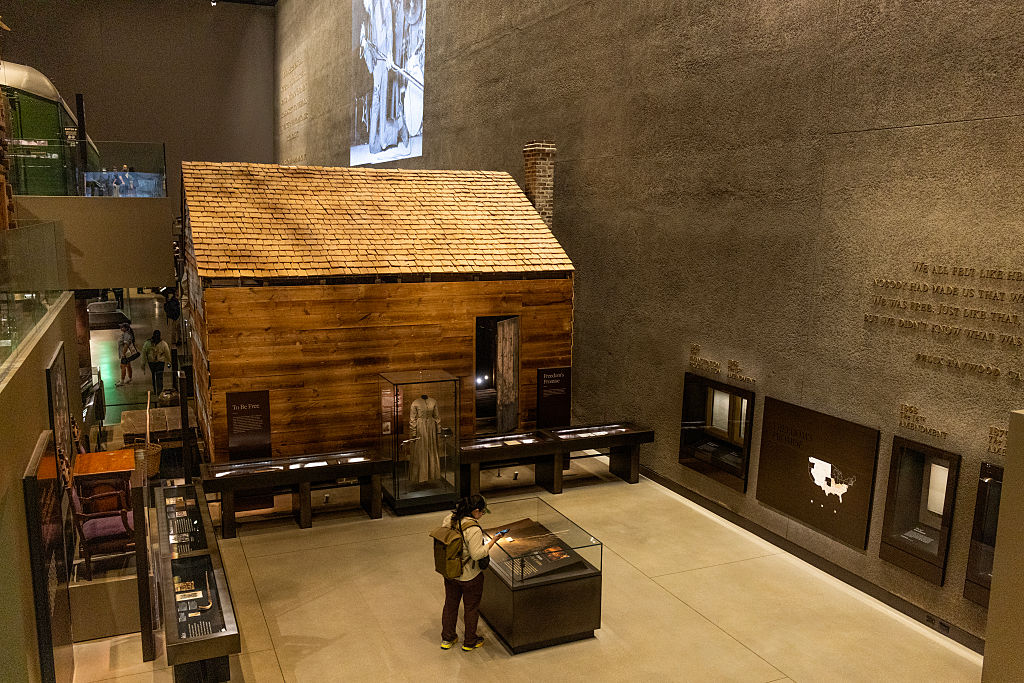American History Is Black History: We Will Not Be Erased
The Trump/MAGA administration has initiated a problematic trend of erasing critical aspects of American history, particularly concerning the era of slavery. One striking piece of evidence showcasing the depths of this dark chapter is the haunting image known as “The Scourged Back,” which depicts the back of Peter Gordon, a former enslaved man. This photograph, taken in 1863 in Louisiana, reveals his back covered in healed keloid scars—evidence of the brutal whippings he endured. It serves as a powerful reminder of the horrors of enslavement, screaming out the inhumanity that defines this period in U.S. history.
The Whitewashing of America
Efforts to remove depictions of Black experiences aim to “whitewash” the country’s true narrative. This term refers to the deliberate alteration of history to present a sanitized version that emphasizes the triumphs of white individuals while neglecting the painful episodes faced by marginalized communities. The history of Black people is inextricably woven into the American experience, and to erase this narrative is to deny the complexities of the nation’s story.
Slavery’s roots in the British colonies date back to 1619 in Jamestown, Virginia, and it officially ended only in 1865 after a brutal Civil War. However, the legacy of enslavement did not vanish with abolition; systems such as Jim Crow emerged to perpetuate racial oppression. This means that for 246 years, formal slavery existed, followed by another century marked by Jim Crow laws—each inflicting deep scars that persist culturally and socially today.
As we approach the United States’ 250th birthday in 2026, it’s crucial to acknowledge that out of the country’s history, 247 years were marred by enslavement or its lingering effects. The tales of struggle and resilience from Black Americans are not just footnotes in history; they form the core of the American narrative.
A Dead and Empty Narrative
The story of America is incomplete without the voices and experiences of Black individuals. Efforts to omit their histories would result in a hollow narrative. The American ethos—symbolized by the Statue of Liberty’s invitation to the world’s weary and oppressed—also must include the histories of those who suffered enslavement and discrimination. The removal of Black history would be akin to severing the heart from a body, leaving only a lifeless, silent shell.
In this narrative, we must consider not only the struggles but also the adaptability and strength of Black communities throughout history. Their contributions have been pivotal to the development of the nation, yet they continue to face systemic denial of their significance.
The Genealogical Brick Wall
A significant challenge in uncovering the rich history of Black families is the slave system that treated them as property. Most were given names for inventory purposes, and their true identities were often lost. Conducting genealogical research often results in a metaphorical “brick wall,” rendering families unable to trace their lineages back through time.
Oral traditions have become a means of preserving history within Black communities, conveying rich narratives of resilience and struggle. My own family’s history, for instance, speaks to a legacy that began on Sullivan’s Island, South Carolina—a significant site in the slave trade. For generations, our lineage remained connected to one plantation, spanning nearly the entirety of the nation’s existence. This continuity offers a glimpse into a heritage that deserves acknowledgment and preservation.
Denying Our Existence and Contributions
Recent arguments for removing imagery and memories tied to slavery often cite the discomfort it causes some white individuals. The Trump administration’s characterization of these historical truths as “corrosive ideology” underscores its attempt to reshape the collective American story. In reality, it is those who wish to sanitize history who feel threatened, as the true narrative challenges their idea of a flawless, white-centric America.
This recurring denial of Black existence and contributions is a systemic issue. Policies and actions taken by this administration have systematically targeted Black and immigrant communities, all while attempting to erase their historical significance. Not recognizing Black history is not merely a historical oversight; it is an attempt to establish a narrative that positions the United States as a homogenous, white Christian nation devoid of its past sins.
We Will Not Be Silenced
In the face of systematic erasure, the resilience of the Black community will manifest in the unwavering commitment to keep our stories alive. Drawing from scripture, we are reminded that the stories of our ancestors must be shared with future generations. We will reflect on the entire spectrum of experiences—the good, the bad, and the ugly.
Despite efforts to silence us, our history will echo through time, emphasizing our capabilities to overcome seemingly insurmountable obstacles. In the spirit of Maya Angelou, we declare: “Still I rise!” Our stories, experiences, and contributions are forever entwined in the American fabric and will continue to emerge no matter how insistent the attempts at erasure may be.
Reverend Graylan Scott Hagler is the senior advisor at the Fellowship of Reconciliation–USA, director and chief visionary of Faith Strategies, LLC, and pastor emeritus of Plymouth Congregational United Church of Christ.



